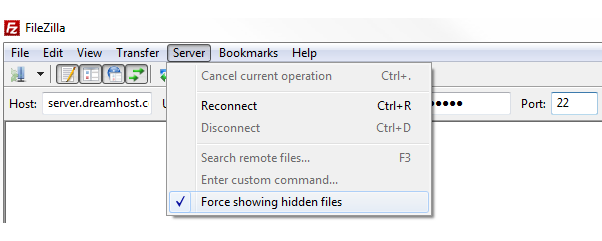Overview
Hidden files are most often files that begin with a period, such as .htaccess. Most FTP clients do not display hidden files by default, so you may need to manually enable this feature.
Enabling hidden files
FileZilla
For example, to enable this in FileZilla, click the Server tab at the top and select Force showing hidden files.
View official documentation
Make sure to view your FTP client's documentation for instructions, as this process differs significantly between clients.
